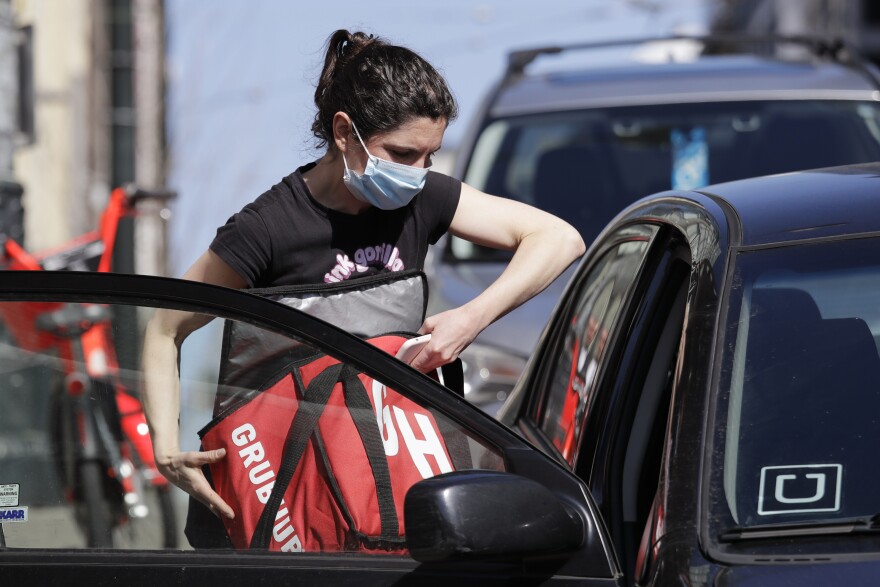There’s a new push by labor rights advocates to set a minimum pay standard for people who work for delivery apps like DoorDash and Instacart.
The national Pay Up campaign aims to ensure delivery app workers get paid at least $15 an hour, plus the cost of mileage and other expenses. Advocates also want to make sure that any tips from customers go directly to the workers.
Locally, advocates are calling on the Seattle City Council to pass new legislation. On Wednesday, gig workers and activists are holding a demonstration in front of Seattle City Hall to call attention to the issue.
Labor advocates say that while the workers value the convenience and flexibility of the "gig" work, they aren’t always making enough to live on, or even minimum wage.
Wei Lin, 33, works for Gopuff, an app that customers use to quickly get food, drinks and other essentials. Lin says he’s joined the Pay Up campaign mainly because he wants to help other gig workers who make even less than he does.
But Lin says he, too, struggles with making enough to cover rent and other expenses.
“If I work triple, double time, yes, it will be enough for me. So if I work 75 hours a week, yes, it will be enough,” Lin said in a recent interview.
Lin added: “Sometimes it depends on the hours you’re working. You make less in the morning because there’s nothing going on in the morning, but you will make more at nighttime, but you have to work through midnight, or 2 or 3 in the morning. I mean, I can do that for a little while, but I can’t do that every day. It’s hurting me.”
In 2020, the Seattle City Council unanimously voted to adopt new regulations that ensured a different type of gig worker — Uber and Lyft drivers — earn the city’s minimum wage.
That same year, the city council unanimously approved legislation that requires food delivery companies to pay drivers $2.50 per delivery on top of their regular pay. The hazard pay remains in effect and won’t be rescinded until Washington state’s emergency proclamation tied to COVID-19 ends.
The current proposal for minimum pay for food delivery app workers specifies that if a minimum pay is established by the city, that hazard pay will be eliminated.
Working Washington, a worker rights organization behind the effort that led Seattle in 2014 to be the first major city to establish an $15 an hour minimum wage and that campaigned on behalf Uber and Lyft drivers, is organizing the current movement involving food delivery app workers.







